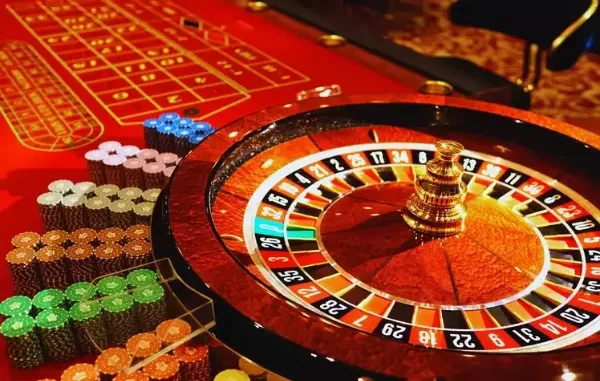
Stuck in a rut with one casino game? Maybe you’re hitting a dry spell. Maybe, it’s time to switch things up. Understanding this on time can be the difference between a loss and a win.
Below, you’ll find the practical signs that tell you that changes are needed.
For instance, take Mr Green, a platform offering a diverse range of slots and table games, with a welcome package split across four strategic deposits – players can get up to 4,000€ plus 300 free spins to explore different games while managing their bankroll.
How to Know When to Switch or Stick
1. Understanding Your Game
First off, you need to know the game. Play it often? You should start noticing patterns. Like understanding how the slot machine or table should behave.
The key? That’s spotting when things go sideways. Take slots. If I haven’t hit anything worthy in 50 spins, it’s time to quit. The same goes for table games. If the cards keep going against me (despite the strategy), that’s a clue.
So, recognize the flow and when it’s no longer in your favor. Don’t know your game well enough? You won’t see it coming. So before switching, learn the patterns and grasp the odds.
2. When the Luck Runs Out
In some sessions, nothing seems to hit. It feels like you’re cursed. But that’s the game’s variance at work.
Accept that bad luck happens. And if nothing lands for what seems like forever, that might be the moment to switch.
For example, I was on a roll with one slot. But after 30 spins with no hits and a dwindling balance? I decided to move.
It’s tempting to think you’ll break through the cold streak. But you might be digging a deeper hole. Take a break. Try a different game. The odds don’t change with persistence. But your mentality sure will.
If you’re curious about optimal game-switching strategies, check out https://game-aviator.com/in/blog/how-to-play-aviator-game-and-win/ for a detailed guide on recognizing patterns and knowing when to step back.
3. The Role of Bankroll
Forget the usual bankroll advice. Here’s something fresh. Are you down but still feeling good about the game? You surely want to push through. However, each next bet may feel like a gamble on top of a gamble.
There was a time when I was playing blackjack. I could see my balance slowly sinking despite sticking to the strategy. At some point, I realized that the game wasn’t on my side anymore. So, I switched to a different game with a lower risk per round. It wasn’t about stopping. It was switching the type of bet I was making.
Does your balance keep taking hits? Don’t wait till you’re down to nothing. Make the change while you’re still ahead.
4. Hitting Your Limit
Know when you’re not in the right mindset. I’ve caught myself playing too long. Or, staying in a game just because I didn’t want to admit defeat. But when frustrated or emotional, you’re not acting at your best. So, stop when things start feeling off.
I once pushed through a poker session for hours. I was more focused on winning back losses than actually playing the game. That’s a clear sign it’s time to switch up the game. Or just stop for the day. Never gamble on tilt or out of frustration.
Hit that point? Don’t ignore it. Switching tables or taking a break can help reset your mindset.
5. The Sweet Spot: Timing Your Switch
The timing of your switch also matters. Switching too early? It can feel like running away from a challenge. Waiting too long? It can leave you frustrated. The trick is finding the sweet spot.
Once, I was losing back-to-back on a slot. I felt the game was going nowhere. I switched. Within a few spins, I hit a nice payout.
Sometimes, all it takes is a fresh start. Feeling like the game isn’t flowing? Switch it up. Don’t wait for a miracle.
It can also refresh your strategy. Have you been focused on high-risk slots for a while? Try something with a bit more stability.
Know When to Make the Switch
When to switch games? It’s all about reading the signs. Bad streaks, lack of hits, a drained bankroll… These are just a few signals to watch out for.
Sticking to a game too long? That can be just as risky as giving up too early. The pro mindset? Know when the game isn’t working for you. And have the confidence to move on. So, keep your head in the game, know when to pivot, and you’ll see better results.
Leave a Reply